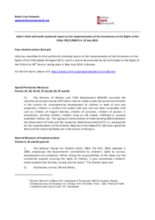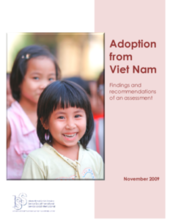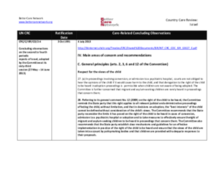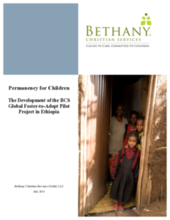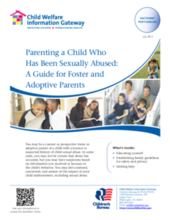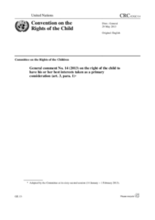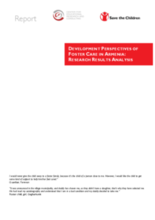Displaying 531 - 540 of 660
India submitted its third and fourth combined report on the implementation of the Convention on the Rights of the Child.
This video describes the work of the Alternative Care Panel in Uganda, a panel composed of professionals who assess the stability of potential adoptive or foster parents to determine if the parents can provide for needy and vulnerable children, with the ultimate goal of keeping children out of institutional settings and in family-based care.
The main aims of this assessment were to identify and address problems in both the domestic and intercountry adoption processes, with a view to assisting Viet Nam in its preparations to accede to the 1993 Hague Convention on Intercountry Adoption (THC-93); and to review the new draft law on adoption, and propose any amendments that may appear necessary to ensure compliance with international standards and good practice.
This country care review includes the care related Concluding Observations adopted by the Committee on the Rights of the Child as part of its examination during the sixty-third session (27 May-14 June 2013) of Israel’s second to fourth periodic reports to the Convention on the Rights of the Child, as well as other care-related concluding observations, ratification dates, and links to the Universal Periodic Review and Hague Intercountry Adoption Country Profile.
This report provides initial documentation of a pilot program launched by Bethany Christian Services in 2009 in Ethiopia. The pilot aims at moving children from institutional care to family-based care by developing alternative family care for non-relative children using a foster-to-adopt approach, working through a partnership between faith communities in Ethiopia and American faith congregations in the US.
This factsheet is designed for caregivers and discusses how they can help children in their care by educating themselves about child sexual abuse, establishing guidelines for safety and privacy in their families, and understanding when and how to seek help if needed.
This article describes the historical background and current situation of the child welfare system for children without parental care in Poland.
General Comment 14, issued by the Committee on the Rights of the Child, refers to article 3, paragraph 1, of the Convention on the Rights of the Child that asserts the right of the child to have his or her best interests taken as primary consideration in all actions or decisions that concern him or her (in both the public and private spheres).
In this article, Kathryn Joyce the author of the book 'The Child Catchers: Rescue, Trafficking, and the New Gospel of Adoption' chronicles the rapidly growing evangelical movement for international adoption in the United States, and its impact on children and their families, with a particular focus on Liberia.
This report produced by the Center for Educational Research and Save the Children summarises a broader research study which examined the foster care pilot programme introduced in Armenia in 2005. The study aimed to find out if the pilot program succeeded, what problems arose, how the program could be improved and how foster care in Armenia could develop and expand effectively.

